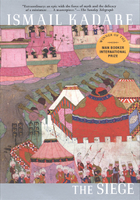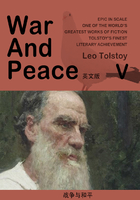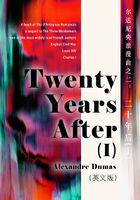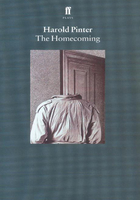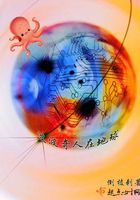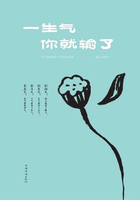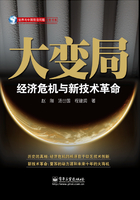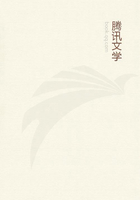Japanese soldiers strategically landed at various points throughout the invasion. Here, they land at Corregidor, on May 4, 1942.
DECEMBER 1941
U.S. Army Sternberg General Hospital, Manila
For the next week, scores of Japanese planes filled the sky over Manila, still bombing Cavite Naval Shipyard, nearby Nichols Field, and Fort McKinley. Nurses learned to expect flights of bombers attacking the nearby city docks each noon, even though the rush of wounded that followed would have been unimaginable to them just days before.
Explosions rocked the hospital building. Chandeliers in its dining room swung, windows shattered, glass sprayed, patients screamed. A bomb concussion knocked down ANC Commander Maude Campbell Davison, injuring her spine. She had only recently taken over the command when Miss Messner rotated back to the States. Now she was a patient.
Only a handful of American planes had survived the assault on Clark Field. From the Sternberg windows Army Nurse Juanita Redmond watched them bravely take on the enemy. "Our planes brought down three of theirs one afternoon."
Nurses were told to go outside during the noontime air raids in case the hospital got a direct hit. Soldiers dug trenches outside the wards, operating rooms, and living quarters. Patients who could walk took safety in the trenches. Nurses moved other patients under their beds for protection and then leaped into the nearest foxhole themselves.
After two weeks of steady bombings, nurses heard the Japanese Imperial Army had sailed into the Lingayen Gulf, 130 miles north of Manila. Seventy-six transports loaded with more than forty-three thousand soldiers dropped anchor the night of December 21. The next morning the well-trained, well-equipped, and battle-experienced Japanese took the beaches.
The nurses did not know that U.S. General Douglas MacArthur had begun training the Philippine Army only six months prior. Most Filipino soldiers had no uniforms, blankets, gas masks, or tools to dig trenches. The Filipinos carried old rifles used by American soldiers in World War I. Many units went into battle without ever having fired their weapons. Big of heart but small in readiness, the troops crumbled and retreated under the massive Japanese assault.
Nurses knew that the Japanese Army was advancing. From the beaches at Lingayen a wide valley formed a natural highway heading straight to Manila. The Filipino-American forces had only one option: fall back to the Bataan Peninsula and fight a delaying action until reinforcements could arrive-War Plan Orange-3.
General MacArthur and his headquarters staff picked up and moved to the fortified island of Corregidor at the mouth of Manila Bay. Top naval officers aboard the two surviving Navy ships lifted anchor and sailed to Australia.
Morale sank at the hospital. Nurses continued to crack jokes to keep up their spirits. When one woman bemoaned her loss of appetite, another quipped that if she were hit by a shell, an empty stomach might improve her chance of survival.
During a bombing raid at Sternberg, Army Nurse Dorothy Scholl stayed with her patients, later seeing the man she'd been dating, Second Lieutenant Harold Armold, and a priest in the nearest foxhole. "I couldn't have gotten in if I had tried," she said, laughing.
AS JAPANESE ATTACKS IN THE SOUTH PACIFIC intensified, American and British leaders met to strategize military tactics in a conflict rapidly spreading around the globe. President Franklin Roosevelt promised to focus most U.S. military resources on the war in Europe. General MacArthur was advised to do the best he could with what he had. U.S. Secretary of War Henry Stimson noted in his diary, Everybody knows chances are against our getting relief to him, but there is no use saying so beforehand.
In a strategy to end the bombing and loss of civilian life, General MacArthur declared Manila an "open city." The 1907 Hague Convention rules of war prohibited any military activity in an open city.
The U.S. withdrawal commenced. Troops marched out. Every barge and boat that could float was loaded with supplies for the Army to defend itself against the Japanese for as long as possible. Within twenty-four hours Corregidor Island was stocked to support ten thousand troops. Every available transport via water, road, and rail was commandeered to supply forces retreating to Bataan. Ammunition had already been stored on the peninsula, as well as petroleum and canned food.
Army nurses from Fort Stotsenberg and Fort McKinley had all evacuated to Sternberg with their patients by December 23. That evening the Sternberg commander interrupted the nurses' supper.
"Girls, pack your white duty uniforms," he told them. "We are going to Bataan tomorrow."
"That's the first time most of us had ever heard of Bataan," said Hattie Brantley, a young nurse from farm country near the town of Jefferson, Texas. As she and her friends prepared to evacuate Manila, their "conferences and arguments about what to take along and what to leave behind were numerous and protracted."
They stuffed underclothing, a few precious possessions, such as photographs and favorite books, and whatever else they could fit into one duffel bag apiece. Rita Palmer packed her black nightie. Another woman fashioned slender pockets inside the pant legs and waist of the extra-large army coveralls she'd been issued. She filled them with tampons.
Ethel "Sally" Blaine, a young nurse who enjoyed looking her best, later realized she'd lost her makeup and nice clothes in the hurried retreat to Bataan. Another left in riding boots and later had no serviceable shoes.
Army nurses wearing gas masks, c. 1941.
CHRISTMAS EVE 1941
AT 5:30 THE NEXT MORNING, CHRISTMAS EVE day, the first twenty-five Army nurses joined doctors and corpsmen in a convoy of buses and military trucks. Dressed for duty in white uniforms, stockings, and caps, they headed for Bataan, and U.S. Army General Hospital No. 1.
The big yellow public buses driving them to Bataan had open sides, which proved handy several miles outside of the city when Japanese bombers appeared overhead. The nurses jumped out of the vehicles, diving into ditches along the road. Focused on survival, they had no idea they were making history as the first group of American Army women ordered into combat.
FRANKIE LEWEY, A FEISTY REDHEAD FROM DALHART, Texas, had argued her way into the Army Nurse Corps despite being older than the twenty-eight-year age limit. She left her hometown nursing job, telling her mother, "If ever there is a war, I hope I get right in the thick of it."
Maybe she remembered those words on the bus jolting toward the Bataan Peninsula. As their convoy neared the town of San Fernando, artillery fire sounded to the east. American tanks and troops were fighting to hold back the Japanese, fighting to give the Filipino-American forces time to retreat.
Reaching Layac Junction at the base of the Bataan Peninsula, the convoy turned south, and the day wore on. Temperatures soared over ninety degrees. Native water buffalo, called carabao, wallowed in water holes for relief, and Filipino children ran naked. The buses passed through the swampy area of the Culo River, a hatchery for swarms of mosquitoes carrying malaria.
A Japanese bombardment airplane probably over Luzon, c. 1941.
Army Nurse Frankie Lewey before the war.
Still, Frankie and the other nurses felt relieved to escape the bombing. They rattled down East Road, anticipating cool sheets and a good night's sleep. The rocky, one-lane route followed the coast of Bataan and formed the western boundary of Manila Bay. Rice paddies gave way to coconut groves, then to a dense jungle of spreading acacia trees, rampant vines, and thick underbrush.
The steamy, fertile tangle of vegetation could not have been more different from the windy, high plains of the Oklahoma Panhandle where Frankie was born.
Her mother ran a boardinghouse and restaurant in a Texas-Oklahoma border town. Frankie's job as a young girl had been to fill the oil lanterns and clean their glass chimneys. She had liked caring for people but wanted adventure, too. Frankie moved more than halfway across the state of Texas to go to nursing school, and later to Washington, D.C., for psychiatric nurse training. Remaining single, gaining higher education, and nursing the mentally ill-all this had strained Frankie's family ties. Some of Frankie's aunts and cousins cut off all contact with her. She entered the Army Nurse Corps in 1940 at Fort Sam Houston, Texas. In the summer of 1941, Frankie was assigned to Fort McKinley, on the outskirts of Manila. In her off-duty hours she volunteered at a nearby leper colony. After the Japanese bombed Fort McKinley in the first week of December, Frankie and the other nurses there moved into the city, where casualties mounted at Sternberg Hospital.
The sun had set when the buses carrying Frankie Lewey and the other nurses pulled into the sleepy fishing village of Limay, a group of tiny bamboo shacks set high on stilts. Wide-eyed children watched the line of trucks and buses crawling down the dirt road toward the beach and Hospital No. 1.
A water buffalo native to the Philippines, called a carabao, wallows to cool itself.

